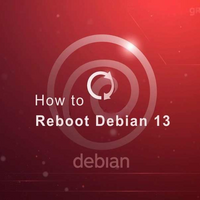- Post
🚀Jellyfin is a powerful and feature-rich media server that is designed to organize your personal movies, TV shows, music, and photos in beautiful libraries and stream everything across all of your devices (and their friends) without the clutter of hidden paywalls or subscription fees.
If you are on Debian 13 (Trixie), you can install Jellyfin manually using its official repositories. In this guide, we’ll take you through the process step by step, and explain what each command is doing so that you understand not just the “how,” but also the “why.”🎼
Continue reading:👇
https://greenwebpage.com/community/how-to-install-jellyfin-on-debian-13-trixie/
#Jellyfin #MediaServer #TVShows #Music #Photos #Debian13 #LinuxAdministration #GreenWebpage
- Post
🚀Linux Mint 22 XFCE Edition is an easy-to-use, fast, and simple Linux software with a lightweight, ideal for both beginners and advanced users. It is based on the XFCE desktop environment that is efficient with the stability of Ubuntu, which is more suitable for old hardware or in systems that require high performance. You can install the OS in your computer with only a bootable USB and a few basic steps.🖥️
This article will take us through the steps required to install the Linux Mint 22 XFCE operating system step-by-step.
Read more:👇
https://greenwebpage.com/community/how-to-easily-install-linux-mint-22-xfce-edition/
#XFCEDesktop #LinuxMint #LinuxAdministration #GreenWebpage
- Post
🚀If you bought a new computer or installed the 𝗡𝘃𝗶𝗱𝗶𝗮 graphics card on your existing computer, but didn’t find the Nvidia drivers installed on Linux Mint, then you need to install them. It is because, by default, Linux Mint comes preinstalled with the Nouveau drivers for Nvidia graphics cards. However, Nvidia drivers can be installed manually. Installing Nvidia drivers on Linux Mint will also install the Nvidia driver manager, which allows you to control the drivers.👩💻
This article will cover various methods for installing the NVIDIA drivers on Linux Mint 22.
Read more:👇
https://greenwebpage.com/community/how-to-quickly-install-nvidia-drivers-on-linux-mint-22/
#Nvidia #GraphicsCard #LinuxMint #LinuxAdministration #GreenWebpage
- Post
🚀It is also powerful to work with the Linux terminal, and at times, it feels like a monotony to open new windows every time. It is here that the Guake, a drop-down terminal modeled after the Quake video game console, comes in very handy. It enables you to easily invoke a terminal with a single key press and put it away when you are not using it.▪️
This step-by-step tutorial will demonstrate how to install Guake on Ubuntu 24.04, how to set it up to be as productive as possible, and why it is an indispensable tool to developers, system administrators, and Linux lovers.
Read more:👇
https://greenwebpage.com/community/how-to-install-guake-drop-down-terminal-on-ubuntu-24-04/
#DropdownTerminal #CLI #Guake #Ubuntu #LinuxAdministration #GreenWebpage
- Post
🚀If you’re running Ubuntu 24.04 LTS and you’d like to have more control over your system’s boot menu, 𝗚𝗿𝘂𝗯 𝗖𝘂𝘀𝘁𝗼𝗺𝗶𝘇𝗲𝗿 is probably one of the best tools to use. It makes it easy to reorder OSes, specify default entries, set a default boot target, customize themes, and modify boot menus and other advanced GRUB settings from a friendly graphical environment.
In this tutorial, we will explain step by step how to install Grub Customizer on Ubuntu 24.04 and how it can be used securely.
Read more:👇
https://greenwebpage.com/community/how-to-install-grub-customizer-on-ubuntu-24-04/
#GrubCustomizer #BootMenu #Ubuntu24.04 #LinuxAdministration #GreenWebpage
- Post
🚀With a dual-boot setup, you can run two operating systems on one computer. Dual-booting Windows 11 and Ubuntu 24.04 is the ideal way to enjoy what each OS has to offer. You get full gaming and productivity support with Windows 11, while Ubuntu 24.04 is safe, customizable, and a common choice among people who develop software.🪟
In this article, I will discuss how to dual-boot safely and as seamlessly as possible.
Read more:👇
https://greenwebpage.com/community/how-to-dual-boot-windows-11-and-ubuntu-24-04/
#DualBoot #Windows11 #Ubuntu24.04 #LinuxAdministration #GreenWebpage
- Post
🚀Upgrading to a new Long-Term Support (LTS) version of Ubuntu doesn’t have to be a stressful, command-line-heavy process. If you are using Ubuntu 22.04 LTS (Jammy Jellyfish) and need to upgrade to Ubuntu 24.04 LTS (Noble Numbat). The following guide will explain how to upgrade your machine using CLI and GUI.⬆️
Read more:👇
https://greenwebpage.com/community/how-to-upgrade-ubuntu-22-04-to-24-04/
#UpgradeUbuntu22.04 #Ubuntu24.04 #LinuxAdministration #GreenWebpage
- Post
Firefox is a well-known web browser that is included by default in the full Ubuntu 24.04 installation. The most recent version of Firefox includes better security, private browsing, and tracker blocking (social platform trackers and cookies). Meeting the demands of the technological revolution, Firefox possesses a killer interface and an insane browsing speed that optimizes the user experience.🌎
The uniqueness and speed in quality browsing have deemed Firefox to be the default browser in Ubuntu 24.04. But if you installed the minimal system, you may not always have Firefox.
This post will describe a way to install Firefox on Ubuntu 24.04 (if not installed already), as follows:
Read more:👇
https://greenwebpage.com/community/how-to-install-mozilla-firefox-on-ubuntu-24-04/
#MozillaFirefox #Browser #Ubuntu24.04 #LinuxAdministration #GreenWebpage
- Post
Redshift is an application that filters blue light by changing the color temperature of your monitor based on the time of day. This helps mitigate eye fatigue and even aids in improving sleep patterns by not interfering with the daily rhythm. The application communicates with the graphics driver, which enables it to modify the gamma ramp, the device that controls how color is represented on the monitor.🌙
This guide covers every possible installation method for Linux Mint 22. Each step is explained in detail.🐧
Read more:👇
https://greenwebpage.com/community/how-to-install-redshift-on-linux-mint-22/
#Redshift #MonitorColor #Graphics #LinuxMint #LinuxAdministration #GreenWebpage
- Post
Cinnamon provides step-by-step guidance through a user-friendly interface ideal for anyone using Linux for the first time, as well as seasoned users. The interface is arranged in a classical style with a panel positioned at the bottom, which houses the start menu and system tray, making everything easy to find.
You have the Cinnamon DE preinstalled if you downloaded Linux Mint 22 Cinnamon edition. In case you are using MATE or Xfce editions, or if you installed Linux Mint 22 from a minimal ISO and wish to install Cinnamon manually, follow the instructions below.
This guide focuses on how to install the Cinnamon Desktop Environment with different methods on Linux Mint 22.
Read more:👇
https://greenwebpage.com/community/how-to-install-cinnamon-desktop-on-linux-mint-22/
#CinamonDesktop #LinuxMint #LinuxAdministration #GreenWebpage











